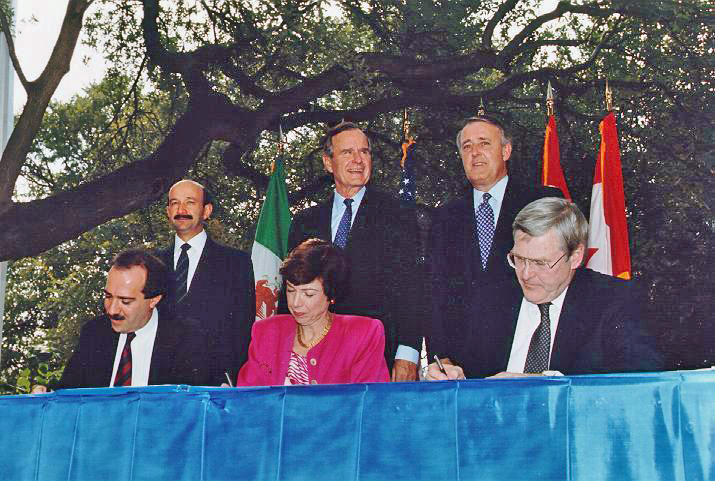Neoliberalism is a school of thought developed in the early 1980s. Like economic liberalism, it aims to minimize the government’s role in the economy. It criticizes the welfare state model, arguing that the government’s intervention should be a last resort.
A welfare state describes a government that actively intervenes in social and economic sectors (family and income support policies, etc.).
Neoliberal ideology has many defenders, including multinationals, financial sectors and some political parties that believe governments that are heavily involved in the economy increase their debt. They support greater individual responsibility, so that people are not dependent on the government.
A multinational is a business that operates in many countries.
Neoliberalists want to stimulate the economy through freedom of trade. This
can be achieved by eliminating customs duties and taxes for international commercial trading, specifically by signing free trade agreements.
NAFTA (North American Free Trade Agreement) was a free trade agreement established in 1994 between Canada, the United States and Mexico.

NAFTA being signed, October 1992
Source
There are certain socio-economic movements, such as antiglobalization, that oppose neoliberalism. When it comes to the economy and trade, these movements worry that free trade agreements allow rich countries to exploit poorer ones. They advocate for the government to stay involved in social spheres.
Antiglobalization is a movement that opposes globalization and offers alternatives such as economic justice, environmental protection and human rights. Antiglobalists fight against the overexploitation of resources.
The loudest voices speaking out against neoliberalism are unions, student associations and social organizations.